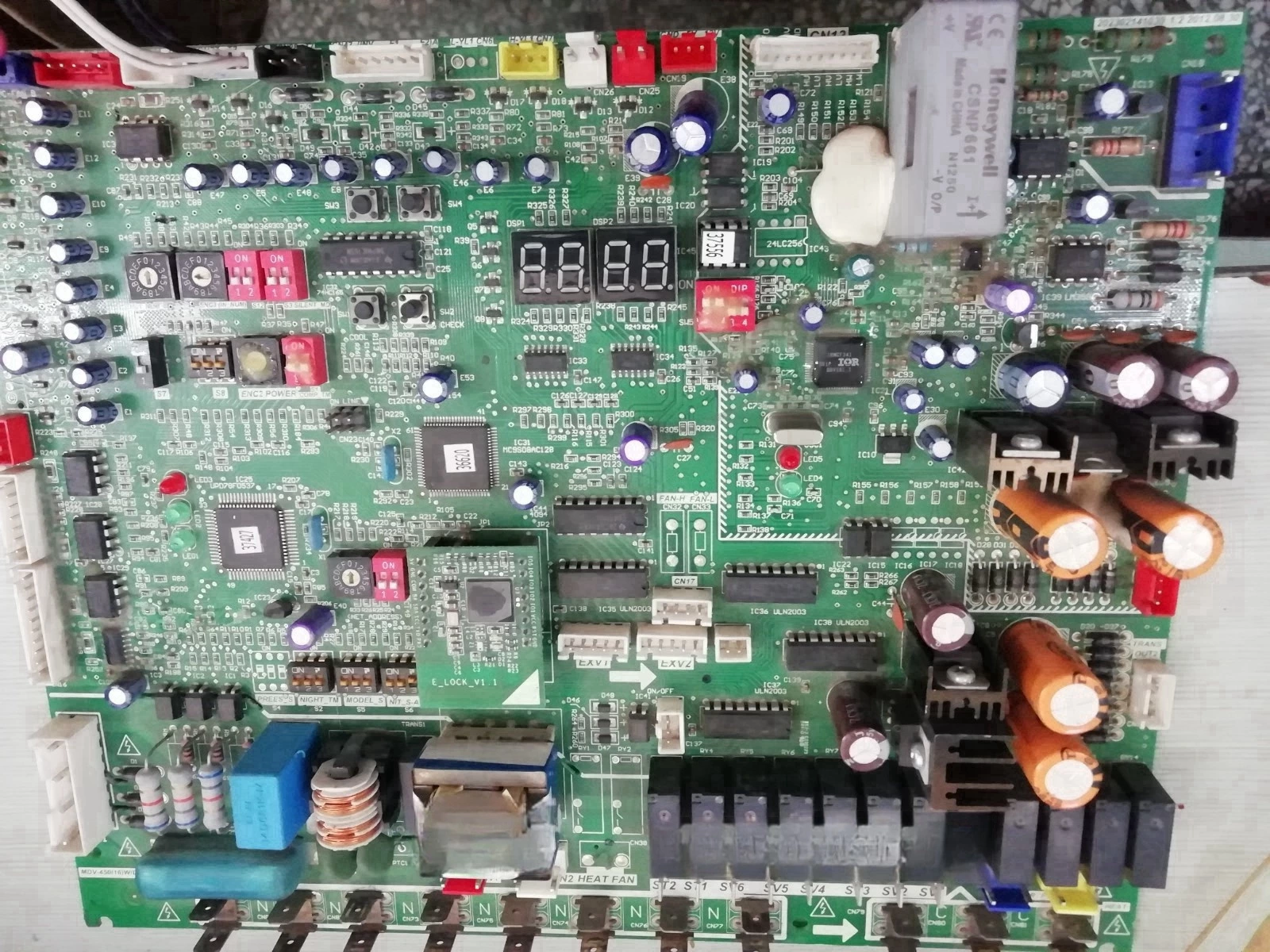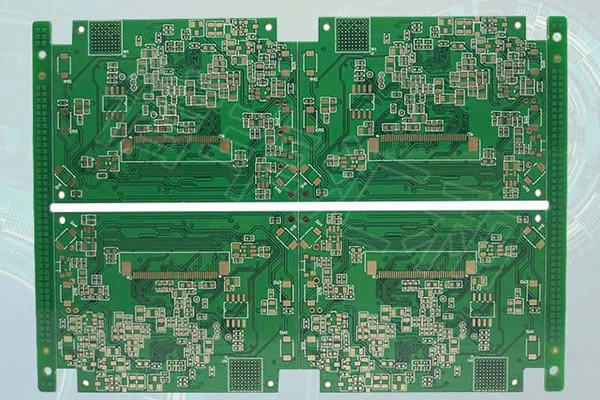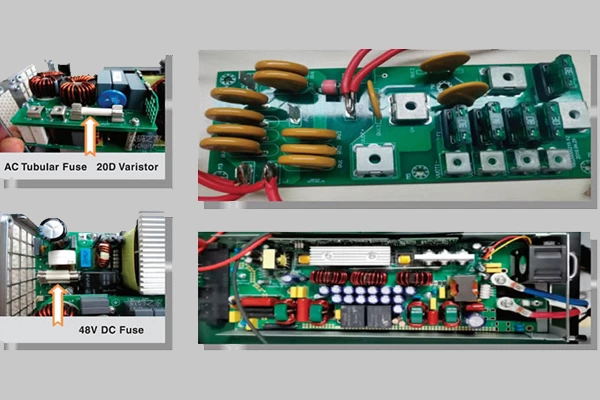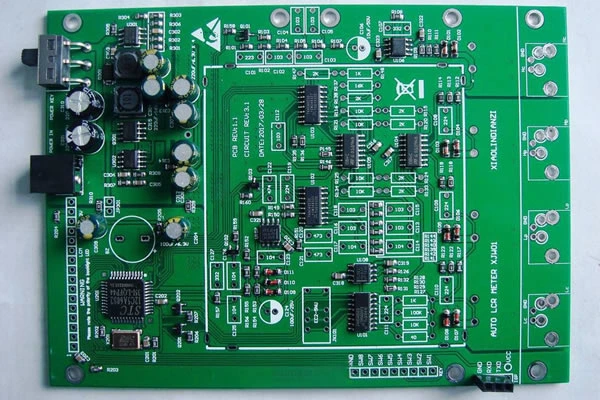Precision Low-Resistance Alloy Resistors in Air Conditioners
Overview
Air conditioners (ACs) are essential appliances in both residential and commercial settings, providing comfort and improving indoor air quality by regulating temperature and humidity. As air conditioning technology evolves, there is an increasing demand for energy-efficient systems with enhanced performance, reliability, and safety. One key component that plays a vital role in ensuring the smooth operation of modern air conditioners is the precision low-resistance alloy resistor.
The Role of Precision Low-Resistance Alloy Resistors in Air Conditioners

Air conditioners are complex systems that include components like compressors, evaporators, fans, and motors. These components require precise power regulation and protection mechanisms to ensure that the unit functions efficiently and does not suffer from power surges, overheating, or malfunction. Precision low-resistance alloy resistors are crucial in several key functions within an air conditioner:
1. Current Sensing in Compressor and Fan Motors
The compressor is the heart of an air conditioning system, responsible for compressing refrigerant and circulating it through the cooling cycle. Precision low-resistance alloy resistors are used to monitor the current flowing through the compressor motor and fan motors, providing vital feedback to the control system for efficient operation.
- Current Monitoring: Precision resistors are used as current sense resistors to detect the current flow through the motor windings. By measuring the current, the control system can ensure that the motors are operating within safe limits, avoiding damage from overcurrent conditions.
- Example: In a split AC unit, the current sense resistor detects the current flowing through the compressor motor. If the motor draws too much current, the system can shut down the compressor to prevent overheating or damage to the motor windings. Similarly, in the fan motor circuit, these resistors ensure that the motor is operating efficiently, adjusting the fan speed when needed.
- Benefits:
- High precision: Low-resistance alloy resistors offer accurate current sensing, ensuring that the system responds appropriately to varying load conditions.
- Stable performance: The resistors’ low temperature coefficient ensures stable performance even when exposed to the fluctuating temperatures commonly encountered in air conditioners.
2. Overcurrent Protection
Air conditioners experience power surges and spikes, especially when components like motors or compressors start or stop. These surges can lead to component failure or reduce the efficiency of the system. Precision low-resistance alloy resistors are key in providing overcurrent protection by detecting excessive current and triggering protective actions.
- Overcurrent Detection: In the event of a power surge or a sudden increase in current, precision resistors detect the anomaly and alert the control system. The control system can then cut power to the affected components, preventing overheating, damage, or fire hazards.
- Example: In the compressor circuit, a precision low-resistance resistor monitors the current flow. If the compressor draws more current than expected—indicating a possible fault or overload—the resistor signals the control board to deactivate the compressor to prevent further damage.
- Benefits:
- Fast response time: Low-resistance alloy resistors detect current anomalies in real time, allowing the system to react quickly and protect sensitive components.
- Long-term reliability: These resistors are designed to handle high currents without degrading, ensuring continued performance over the life of the air conditioner.
3. Voltage Regulation in Power Supply Circuits
The power supply unit (PSU) in air conditioners is responsible for providing stable voltage to various components, including the compressor, fan motors, and control boards. Precision low-resistance alloy resistors help maintain consistent voltage levels by working in the voltage regulation circuits to control current flow and protect sensitive components.
- Voltage Monitoring: Precision resistors are often used in feedback loops within voltage regulator circuits to monitor and stabilize voltage. By maintaining a stable voltage, the air conditioner can operate efficiently without risking component damage due to overvoltage or undervoltage conditions.
- Example: In a window air conditioner, precision resistors are integrated into the voltage regulator that controls the power supplied to the compressor motor. If the voltage strays too far from the ideal range, the system can adjust the power supply or shut down the motor to protect the components.
- Benefits:
- Improved efficiency: Stable voltage ensures the optimal performance of power-hungry components like the compressor and fans, improving the overall energy efficiency of the air conditioner.
- Protective action: Precision resistors enable the system to respond quickly to voltage fluctuations, preventing damage to sensitive components.
4. Thermal Management and Protection
Air conditioners are designed to work in environments with fluctuating temperatures, and components like the compressor and motor often generate significant heat. Thermal management is crucial to ensuring that the system operates reliably and efficiently, especially during peak cooling periods.
- Temperature Sensing: Precision low-resistance alloy resistors are sometimes used in combination with temperature sensors to monitor the heat generated in critical components. If components like the compressor or motor exceed safe temperature thresholds, the control system can adjust operational parameters or trigger an automatic shutdown to prevent thermal damage.
- Example: In a central air conditioning system, precision resistors are used in conjunction with thermistors to monitor the temperature of the compressor. If the temperature becomes too high, indicating potential overheating, the system can reduce the power to the compressor or activate the cooling fans to dissipate heat more effectively.
- Benefits:
- Reliable thermal control: Low-resistance alloy resistors help ensure that thermal monitoring is accurate and that the system remains within safe operating limits.
- Extended lifespan: Effective thermal management helps extend the lifespan of high-temperature components by preventing overheating and minimizing thermal stress.
5. Power Efficiency and Energy Saving
As air conditioners consume significant amounts of energy, especially in commercial or large residential settings, energy efficiency is a key consideration for manufacturers and consumers. Precision low-resistance alloy resistors contribute to improved power monitoring and efficient energy usage.
- Power Monitoring: By providing accurate current and voltage measurements, precision resistors enable the power management system to optimize energy use. For example, they can help adjust the compressor's operation based on real-time load requirements, ensuring that the system consumes only the energy needed to maintain the desired indoor temperature.
- Example: In a split system AC unit, precision resistors in the voltage regulation circuit can monitor real-time power consumption. The control system can then adjust the compressor speed and fan settings to optimize energy usage and reduce electricity consumption during periods of lower cooling demand.
- Benefits:
- Energy savings: By optimizing power consumption, precision resistors contribute to lower operating costs for users.
- Environmental impact: Efficient power usage helps reduce the carbon footprint of air conditioners, aligning with growing environmental concerns.
Conclusion: Enhancing Air Conditioner Performance with Precision Low-Resistance Alloy Resistors
Precision low-resistance alloy resistors play a critical role in the power management, protection, and thermal control of air conditioners. They ensure that key components like compressors, motors, and power supply units operate efficiently, reliably, and safely. These resistors help air conditioners maintain optimal performance, reduce energy consumption, and protect against potential faults such as overcurrent, overvoltage, and overheating.
As a resistor manufacturer, we provide precision low-resistance alloy resistors designed specifically for the demanding environments of air conditioning systems. Our resistors are built to offer high accuracy, low temperature coefficients, and long-term reliability, contributing to enhanced energy efficiency, safety, and performance in air conditioning applications. These resistors help air conditioner manufacturers deliver products that meet the needs of modern consumers, offering better reliability, lower energy costs, and greater comfort.



